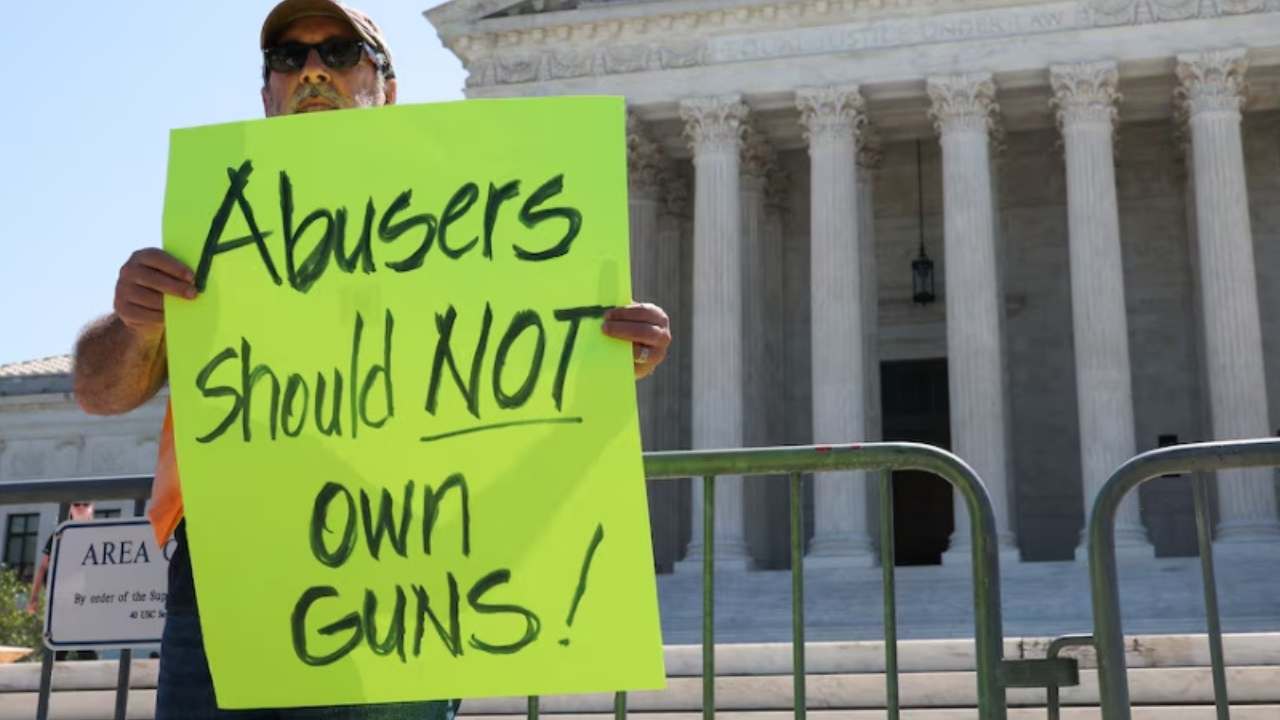The U.S. Supreme Court’s decision to uphold the federal law barring individuals under domestic violence restraining orders from owning guns is significant.
This ruling, with Chief Justice John Roberts authoring the opinion, reverses a lower court’s decision and reinforces the law’s constitutionality under the Second Amendment.
The case originated from Texas, where a man challenged the law after being subjected to a restraining order following an assault on his girlfriend and threats of violence.
The court’s 8-1 decision reflects a continuation of legal restrictions on firearm possession in specific circumstances, despite recent expansions in gun rights in 2022.
Chief Justice John Roberts’ opinion highlights the Supreme Court’s view that firearm regulations targeting individuals who pose threats align with historical legal practices dating back to the nation’s founding.
This perspective contrasts with the 5th U.S. Circuit Court of Appeals’ earlier conclusion, which applied a strict test set by the Supreme Court in 2022.
Roberts’ reasoning underscores the longstanding legal tradition of regulating firearms concerning individuals who demonstrate a potential for physical harm, supporting the constitutionality of the federal law restricting gun ownership for those under domestic violence restraining orders.
“When a restraining order contains a finding that an individual poses a credible threat to the physical safety of an intimate partner, that individual may – consistent with the Second Amendment – be banned from possessing firearms while the order is in effect,” Roberts wrote.
Biden’s administration defended the law as critical to protect public safety and abuse victims, who often are women.“No one who has been abused should have to worry about their abuser getting a gun,” Biden said, touting his record on gun control. “As a result of (Friday’s) ruling, survivors of domestic violence and their families will still be able to count on critical protections, just as they have for the past three decades.”
Justice Clarence Thomas, known for his conservative viewpoints, dissented in the Supreme Court’s decision to uphold the federal law regarding individuals under domestic violence restraining orders and their access to firearms.
His dissent stands in contrast to Chief Justice John Roberts’ opinion and likely reiterates his interpretation of the Second Amendment’s broader protections, as articulated in his previous rulings, including the 2022 case New York State Rifle and Pistol Association v. Bruen. Thomas’ dissent emphasizes his belief that the law should have been struck down as unconstitutional under the Second Amendment’s right to “keep and bear arms.”
“Not a single historical regulation justifies the statute at issue,” Thomas wrote, adding that “in the interest of ensuring the government can regulate one subset of society, (Friday’s) decision puts at risk the Second Amendment rights of many more.”
The case involving Zackey Rahimi illustrates the practical implications of the federal law upheld by the Supreme Court. Rahimi, who was under a domestic violence restraining order, illegally possessed firearms and was subsequently involved in multiple criminal incidents, including shootings.
Despite his Second Amendment challenge, a federal judge initially rejected Rahimi’s argument, leading to a sentence of over six years in prison. The 5th Circuit Court of Appeals later weighed in before the case reached the Supreme Court.
The severity of Rahimi’s offense underscores the significant penalties associated with violating this law. Originally punishable by up to 10 years in prison at the time of Rahimi’s indictment, the penalty has since been increased to 15 years.
This legal framework aims to restrict firearm access for individuals deemed to pose a risk of harm due to domestic violence or related offenses, reflecting broader concerns about public safety and the regulation of firearms in contentious situations.



































